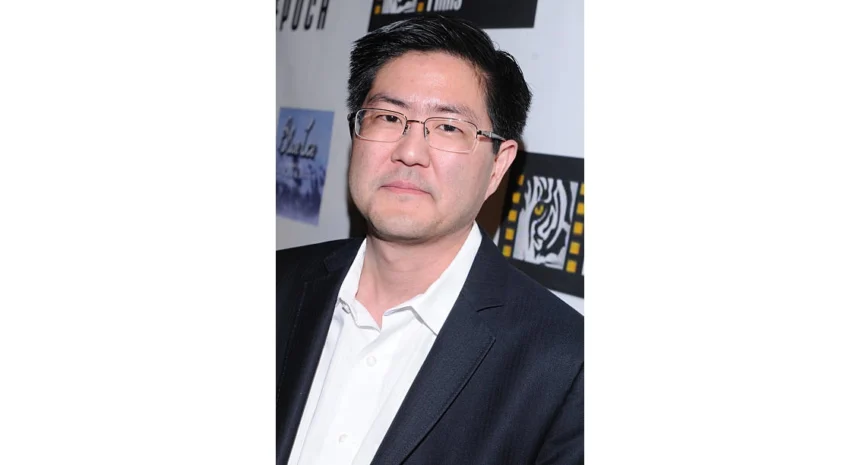If you know indie cinema, you know Gregory Hatanaka. The veteran director, producer, and distributor has spent decades zigzagging through cult classics, international gems, and wild underground projects — the kind of movies you stumble on at 2 a.m. and can’t stop talking about the next day. Now, Hatanaka is gearing up for what he calls his “most ambitious” projects yet: the metaphysical epic No Regrets and the pulse-pounding The Shout, which he will both direct and star in.
The Cinema Epoch Effect
Hatanaka first made waves as a distributor, working on films starring Catherine Deneuve and Ewan McGregor before launching his own company, Cinema Epoch, in the mid-2000s. Cinema Epoch quickly became a haven for adventurous moviegoers: think Asian action extravaganzas, avant-garde indies, and cult midnight movies that blur the line between arthouse and grindhouse. If it was bold, risky, or too strange for the mainstream, chances are Hatanaka found a way to get it onto a screen.
His approach to distribution has always been rooted in taste rather than trend. “I love movies that take chances,” he has said. “They may not be for everyone, but the people they’re for, they’ll never forget them.” That philosophy has carried seamlessly into his own directing career.
Director on the Edge
Behind the camera, Hatanaka is just as fearless. His breakthrough, Mad Cowgirl (2006), became a cult sensation for its surreal energy and gonzo storytelling. He followed with the Norman Reedus–starring Until the Night (2004), the experimental Violent Blue (2011) and Blue Dream (2013), the latter featuring James Duval in a haunting performance. Fans of cult cinema also know him for Samurai Cop 2: Deadly Vengeance (2015), which resurrected one of cinema’s most beloved “so-bad-it’s-good” franchises with a cast that included Bai Ling and Tommy Wiseau.
As a producer, Hatanaka has backed projects like Darling Nikki (2016) and Caged Beauty (2016), proving he’s as committed to championing new filmmakers as he is to creating his own offbeat visions.
Building a Film Family
More than anything, Hatanaka’s vision resembles what John Cassavetes once called “family filmmaking” — a circle of trust where the same performers return again and again, forging films out of collaboration and instinct as much as script and design. For Hatanaka, that family has grown into a vibrant ensemble.
Regular collaborators like Nicole D’Angelo (Darling Nikki), whose versatility has made her one of his closest creative partners, and Chris Spinelli (Kill Plan), whose grounded performances anchor Hatanaka’s more surreal visions, form the backbone. Louis DeStefano (Another Way To Die) brings an intensity that cuts through even the strangest narratives, while Lisa London, a strong veteran cult movie actress (Savage Beach), adds pedigree and experience.
Hatanaka’s family also embraces fresh and international voices. Luca Toumadi (Boiling Point) brings a brooding presence; Saint Heart (Panic) adds dynamic range as both actor and performer; and Japanese actor Masashi Ishizuka (Yakuza Girl) delivers a cool, commanding energy that crosses cultural lines. On the fringes of the troupe are multi-hyphenates who add their own sparks: Shane Ryan-Reid (Night Cops), with his raw, vérité sensibility; Jamie Grefe (Bad Girl School), whose surreal writing style meshes with Hatanaka’s fearless direction; Joycelyne Lew (The Big Brawl), a veteran presence with undeniable screen gravitas; and Johnny Mask (Samurai Cop 2), who brings rugged charisma to Hatanaka’s universe.
“Filmmaking is about community,” Hatanaka explains. “When you find your people, you can take risks together — and the audience feels that energy.”
The Next Chapter: No Regrets and The Shout
So what’s coming? No Regrets is being described as Hatanaka’s magnum opus: a sprawling, dream-logic journey through memory, identity, and the line between reality and fantasy. It’s the film he’s been building toward for years, weaving together his fascination with surrealism, spirituality, and fractured selfhood.

Meanwhile, The Shout promises something different — a tense, stylish thriller where Hatanaka steps in front of the camera to star as well as direct. Early word suggests a gritty mix of paranoia, intensity, and raw emotional energy. For fans, it’s a rare chance to see the man who’s spent decades shaping stories now inhabiting one himself, bringing his signature intensity to the screen.
And if his reputation is for dark, challenging storytelling, Hatanaka insists there’s always laughter in the shadows. “I find humor in the darkest areas of life,” he says. “There’s great comedy in the slapstick of existence. Ernie Kovacs was a big influence on me — his ability to bend reality and show us how ridiculous it all is still inspires me every day.”
For Hatanaka, cinema is never one-note. It’s at once dangerous and absurd, lyrical and rough-edged. “It’s the most exciting time to make movies,” he adds. “The tools are in our hands, the audience is global, and people are ready for cinema that’s daring and freethinking. That’s what keeps me inspired.”

From the eclectic archives of Cinema Epoch to the high-stakes future of No Regrets and The Shout, Gregory Hatanaka is still proving what his fans have always known: in his world, movies don’t just entertain — they create a family, find truth, and uncover humor in the chaos of life.




